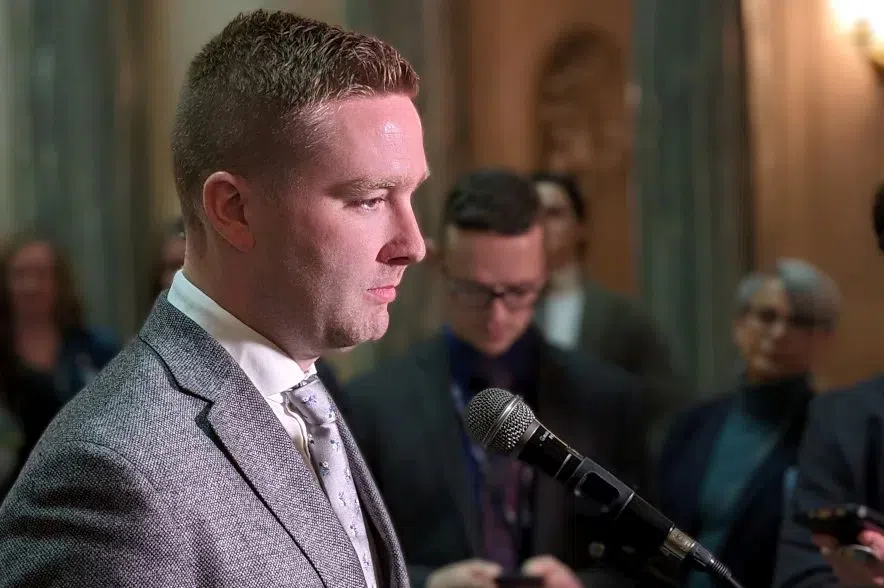REGINA — Debate over a labour dispute between Saskatchewan teachers and the province heated up in the Legislature on Monday, with the Opposition demanding the government get a deal done.
The education minister, however, said it’s the teachers’ union that needs to return to the bargaining table.
On Monday, Saskatchewan teachers paused volunteering in extracurricular activities for the next three days as part of job action, resulting in cancelled athletics, field trips, travel and school club meetings.
On Thursday, teachers in some school divisions plan to not volunteer for noon-hour supervision.
It’s the latest in a series of moves the Saskatchewan Teachers’ Federation says are necessary to get the province to come to the table and negotiate on smaller classroom sizes and additional supports.
The province has refused to negotiate those items into the collective agreement. It has instead signed a separate agreement with school boards, which are to allocate $45 million in new funding for classroom supports.
The dollars are part of the budget, set to be introduced March 20. The province also plans to spend $180 million more in operating funding for education this year.
“The job interruptions that we have right now, that is solely the choice of the Saskatchewan Teachers’ Federation, solely the choice of Saskatchewan Teachers’ Federation leadership,” Education Minister Jeremy Cockrill told the assembly.
“They’re interrupting classes, interrupting extracurriculars. That’s not what’s good for our kids, and we need them to come back to the bargaining table.”
Opposition NDP Education Critic Matt Love said it was the government’s choice to attack the autonomy of school boards over the last 10 years.
“Will the minister do the bare minimum and show respect to teachers? And will he sign his commitment into a contract?” Love asked.
Love later told reporters the agreement with school boards doesn’t ensure the new funding remains in place, as it’s subject to budget appropriation.
He said the public can’t trust the Saskatchewan Party government to follow through on the commitment. He noted the province made cuts before, and in 2018 didn’t fully fund an expected contract with teachers.
Cockrill told reporters budget appropriation happens every year and he’s committed to the funding being offered.
He said the government won’t put the terms outlined in the school boards’ agreement into the teachers’ contract.
“We’ve been clear all along that these are decisions that belong between government and locally elected school boards,” Cockrill said.
Love said having it in the collective agreement with teachers provides autonomy to school boards while ensuring the dollars are spent on addressing classroom sizes and adding supports.
“It holds them accountable so they can’t decide in the future to backtrack on those commitments, which is what they’ve done in the past,” he said.
The federation says it wants its contract to have the same terms outlined in the province’s agreement with school boards.
It also wants assurances funding won’t be reduced and that school boards actually spend the dollars on student supports. Funding should also increase with the rate of enrolment and inflation, it adds.
“If government is willing to negotiate on the items addressed within the memorandum of understanding and bring this to back to the table, we believe an agreement can be reached quickly,” union president Samantha Becotte said last week in a news release.
Last week, a group of students went to the Legislature voicing their support for the teachers, but they were also frustrated over cancelled activities.
“It’s kind of hard for us because we’re on and off school all the time. One day we have basketball practice, the next day we’re striking, but the next day we have a game,” Lena Conway, a Grade 8 student in Regina, told reporters last week.
“It’s not fair to my friends, it’s not fair to my basketball team, and it’s not fair to our teachers.”
Jeremy Simes, The Canadian Press







